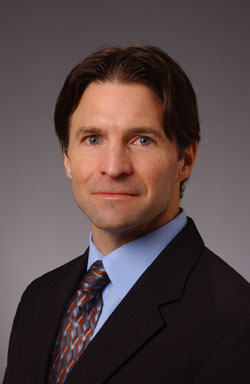UNTHSC professor leads national effort to improve care for HIV patients
 |
| Patrick Clay, PharmD |
A UNT Health Science Center professor will lead a national team of researchers trying to improve outcomes for HIV patients by studying communication patterns between their primary care physicians and pharmacists.
Lead investigator Patrick Clay, PharmD and Professor of Pharmacotherapy, will analyze communication patterns against patient outcomes in hopes of identifying best practices that will improve care for HIV patients across medical disciplines.
The project is funded by a grant worth nearly $2.4 million from the Centers for Disease Control; the pharmacy chain Walgreens is committing nearly $1 million of in-kind services. A partner on the project is HealthHIV, a national non-profit organization that conducts health services research and provides HIV primary care education and capacity building.
“HIV can now be a life-long, chronically managed condition, but only if the patient is able to tolerate and remain adherent to arguably the most complex drug regimen ever used in medicine,” Clay said. “Getting all these pieces to work in harmony requires teamwork that seamlessly transitions patients from first testing positive through achieving undetectable viral loads and stable immune systems.”
The study will follow 1,000 participants nationwide, at least 15 percent of whom must be from rural communities. The participants receive treatment from 10 HIV primary care clinics, each of which has partnered with select Walgreens pharmacies where specially trained pharmacists will provide individualized care known as medication therapy management (MTM).
MTM pharmacists meet with patients one-on-one to create care plans that focus on medications – but can include factors such as diet, exercise and health education. MTM pharmacists also take instructions from and share their assessments with their patients’ physicians, so that the entire health care team can work together to get the best outcomes.
Medication therapy management is part of the curriculum at UNT System College of Pharmacy, which opened earlier this year on the UNTHSC campus.
“The hope is that the results of this project will be applicable to other populations that take complicated medication regimens, such as patients with diabetes, asthma and high blood pressure,” Clay said.
Other institutions collaborating on the project include the University of Minnesota, University of Nebraska, Northwestern University, University of Kentucky and the American Pharmacists Association.






Social media